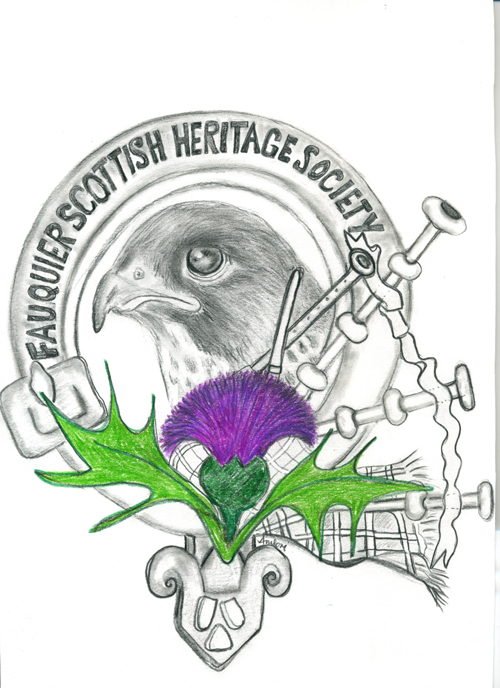 TAEM- History has a lot to say in writing a story and it is a big part in every author’s work. Deirdre Marie Capone is one such author, and the history around her novel is not only well known, but personal. It is about Al Capone.
TAEM- History has a lot to say in writing a story and it is a big part in every author’s work. Deirdre Marie Capone is one such author, and the history around her novel is not only well known, but personal. It is about Al Capone.
Deidre, tell us about your early life and about your family relationship to this historic figure.
DMC-I am a Capone. My grandfather was Ralph Capone, listed in 1930 as Public Enemy #3 by the Chicago Crime Commission. That makes me the grand niece of his partner and younger brother, Public Enemy #1: Al Capone.
For much of my life, this was not information that I readily volunteered. In fact, I made every effort to hide the fact that I was a Capone, a name that had brought endless heartache to so many members of my family. In 1972, when I was in my early thirties, I leftChicagoand my family history far behind me, reinventing myself inMinnesotaand making sure that no one in my life other than my husband Bob knew my ancestry. I succeeded—even with our four children.
But the truth about who I was hovered at the edges of the reality I had created, and I was terrified of it—terrified of revisiting the shy, wounded girl who grew up friendless, shunned by classmates, forbidden to play with a mobster’s child; terrified of once again hearing those dreaded words, “You’re fired,” and seeing another employer’s doors close to me because of my name; terrified of reawakening the grief of losing both my father and brother to suicide, collateral damage of the Capone legacy; and, above all, terrified that if my children learned they had “gangster blood” running through their veins, they’d be exposed to the same pain I had experienced.
 TAEM- Tell our readers what inspired you to write your novel, ‘Uncle Al Capone’, and why you published it.
TAEM- Tell our readers what inspired you to write your novel, ‘Uncle Al Capone’, and why you published it.
DMC-When my nine-year-old son Bobby came home from school one day in 1974 to announce that his class was learning about Al Capone, it knocked the wind out of me.
Ever since my children started school, I had developed the habit of asking, “What did you learn today?” when they came home. Of course, I always listened to their answers with great interest, but on that particular day, I felt like the whole world had just slid out of focus, leaving only Bobby and me. There he was, smiling and cheerful as always, telling me he was learning about my uncle in his fourth grade class.
My heart seized, but somehow, I managed to get out a half-casual, “What did you learn about Al Capone?” “We learned that he was a gangster,” Bobby told me. He went on to tell me about Prohibition in the 1920s and 30s, Al’s bootlegging operation, and how he had been such an expert outlaw that when the police finally nabbed him, the only charge they could pin on him was tax evasion. I was so astonished that all I could do was nod along as he spoke.
TAEM- Please tell our readers about your family’s emigration from Italy to America and the early childhood of Al Capone, the main protagonist in your work.
DMC-Al’s mother, Teresa Raiola, and his father Gabrielle Capone were both born in a little town called Angri in Italy. Their oldest son Vincenzo was born in Angri then they went to Castelammare di Stabia where my grandfather Ralph was born. Gabrielle traveled to Americaby way of Canadaand settled in Brooklyn. My grandmother Teresa traveled by ship to Americaby way of Ellis Island. Their son Frank was born in Brooklyn and Al Capone was conceived and born in Brooklynmaking him represent the American Dream to his parent.. They lived in very crowed quarters. Al’s father was a barber and his mother sewed and baked bread to help support the family. Life was very tough for Italians at the beginning of the 19th century. They were the last to be hired and the first to be fired.
TAEM- How was life for you prior to writing this story ?
DMC-My married adult life has been very blessed. After I managed to escape the Capone name and relocated toMinnesota, my wings spread and I have done amazing things. I am a very successful mother, grandmother and business woman. I have four children, three children-in-law and fourteen grandchildren. My husband and I started a business inMinnesotain 1972 which our youngest son had taken over. It is still a successful business and will turn 40 next year.
TAEM- Tell us about your early relationship with Al Capone as a child, and what you knew about the man.
DMC- I knew Al very well. I spent much time with him at his three houses,Miami,Chicagoand MercerWisconsin. I ate with Al, I swam with him, I cooked with him, sang with him, laughed with him and cried with him. I want people to know the man named Al Capone. He was a son, a brother, a husband, a father and an uncle. I have never met anyone who actually knew him who did not like him and said nice things about him. The following is just an example of some of the stories people told me.
I was speaking to a writer a couple of years ago about the possibility of her helping me write my book. When I told her who I was, she hesitated for a minute and then started to laugh. Her grandfather had told her a story about my uncle.
Her grandfather had two sisters who were spinster schoolteachers. In the late 20s they saved their money for a trip to see theWindyCity. Their goal was to visit the museums and go to the theatre. Shortly after they arrived in the city, a tire blew out on their car. The two got out, and as they stood looking at it and wondering what to do, a black limousine pulled up alongside them. The man in the back seat rolled down his window and asked, “Do you ladies need help?” Of course their reply was that they did, and the man told his driver to change the tire for them.
While the driver did his work, the three had a conversation. The sisters told the gentleman where they were from, and what they wanted to see while in the big city. He presented the ladies with his business card: “Al Brown, Furniture Dealer.” He told them, “If you ladies need anything while you are inChicago, give me a call.”
The sisters had a wonderful time, but on the last day after they returned from an outing, they discovered that the cash they had hidden in their room had been stolen. Women of that day never carried much cash on their person. They didn’t know what to do, as they needed that cash to pay the hotel bill and buy gas for the trip home. right away.”
About ten minutes later, there was a knock on the door. When the ladies asked who was there, the voice replied, “The hotel manager, ma’am.”
When they opened the door, the hotel manager stood there with a wide-eyed look on his face.
He handed them a stack of cash and murmured in awe, “Why didn’t you tell me that you were friends of Al Capone?”
They decided to call Mr. Brown. “Mr. Brown, can we borrow $100? We promise to repay you as soon as we get back toSioux Falls.”
Mr. Brown asked which hotel they were in and how much money they lost. He then said, “Please stay in your room and I will send someone over right away.”
About ten minutes later, there was a knock on the door. When the ladies asked who was there, the voice replied, “The hotel manager, ma’am.”
When they opened the door, the hotel manager stood there with a wide-eyed look on his face.
He handed them a stack of cash and murmured in awe, “Why didn’t you tell me that you were friends of Al Capone?”
 TAEM- When did you decide to tell his story, and what prompted you to do so ?
TAEM- When did you decide to tell his story, and what prompted you to do so ?
DMC-After my father committed suicide just before my 11th birthday, I decided I wanted to find out about my family and I began to ask questions. My grandfather and his only sister were my biggest sources of information. They made me promise I would not write my story until all the original family member had dies. I kept my promise.
TAEM- What light does your novel shed on Al Capone, and how does it differ from what history tells us about him ?
DMC-My purpose for writing this book is not to try to change anyone’s opinion of my uncle Al Capone or gloss over any of the documented incidents related to him or the Outfit. My intent, instead, is three-fold: first, to educate the public on another side of my uncle, a man who had a family, a heart, and a sense of purpose; second, to correct some of the errors written about him, corrections that could only come from a family member’s point of view; and third, to show that there has not been a single person carrying Capone blood that has been a detriment to society. It is my hope that this last purpose will give some meaning to my father’s all-too-brief life but enduring legacy—a legacy that lives in me and my family.
The books and movies about Al Capone document and dramatize the crimes, the influence, and the “sit downs” with the crime bosses, but now you know the man behind the infamy, the man I called “Uncle Al.”
TAEM- Where have you appeared to talk about the book and what publications has it appeared in ?
DMC-I have been on the Today Show, CBS Sunday Morning, History Channel, Local News shows, WGD Radio Chicago, Coast To Coast radio, Jeff Rense Show, and many newspapers around the world.
TAEM- Where can our readers find your book ?
DMC-Amazon.com, Barnes & Noble.com, any bookstore and personally autographed copies can be purchase safely on my website, www.unclealcpone.com
TAEM- Deirdre, you are one of the most interesting authors that we have had the pleasure to interview, and you shed new light on one of the most well known figures in the annals of American History. We want to thank you for sharing your time with us and hope to hear more about your book in the near future.
TAEM
Please share the story on Facebook, or donate to support our efforts!





















.jpg)

























